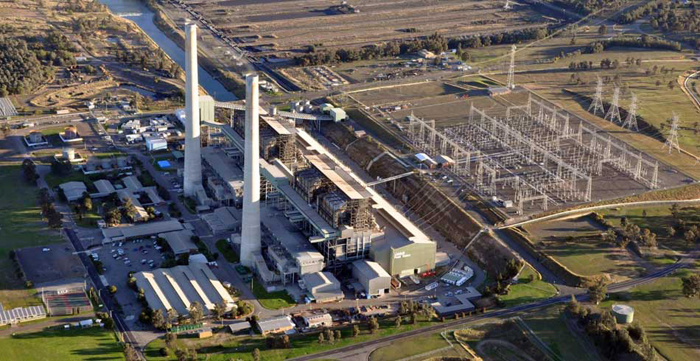The PM’s choice of energy and resources ministers signifies a deep antipathy toward renewable energy and a deep scepticism about the role of man-made climate change

If Scott Morrison wants to see Australia’s steady shift to renewable energy come to a grinding halt, putting Angus Taylor and Matt Canavan in charge of energy and resources was a masterstroke.
The two ministers have put career and reputation on the line in their determination to see wind and solar power put in their place and the coal industry given a new lease on life.
Last week’s long-awaited declaration by energy minister Taylor that Australia is about to meet its 2020 large-scale renewable energy target (RET) was remarkable only for what it didn’t say.
It was somewhat premature given that the announcement referred to renewable capacity that is committed (including Tasmania’s Cattle Hill wind farm) but not yet operational. But that’s a minor quibble; no-one is contesting that the RET will be met ahead of time.
That target would have been surpassed long ago but for an attempt by the Abbott government to abolish it. That failed, but it did see our earlier goal of 41,000 gigawatt-hours for large-scale renewables cut back to 33,000 GWh, causing an investment hiatus.
Taylor didn’t mention this episode or his active role in it, nor the fact that before and after entering parliament in 2013 he was on the front line of the crusade against wind farms, which he declared were causing land values to plummet.
He has softened his opposition to renewable energy, but he continues to warn, as he did last week, that intermittent wind and solar cannot deliver “an affordable and reliable system” without “dispatchable” power from sources like pumped hydro, gas and coal.
Suggesting that wind and solar are unaffordable is wrong – they are now the cheapest energy sources – and Taylor ignores the role of an efficient network using generation distributed over a wide area. He also overlooks multiple technologies to stabilise and store intermittent energy, one being pumped hydro which relies on the wind power that he has so strongly opposed.
Taylor seeks to underwrite new gas and coal generation to achieve “a balance in the system” but rules out extending the RET beyond 2020, a stance that has led to a worrying pause in renewables investment.
For his part, last week resources minister Canavan attacked activists opposing new coal mines – he called them “pampered, privileged and petulant” – and the Queensland government, which was “cowardly” for taking too long to approve a coal mine at Muldu, west of Brisbane.
Canavan wants more thermal coal both for Australian use in new coal-fired power stations which he wants the government to underwrite, and for export to India, which he sees as a moral question in that the exported coal would help lift Indians out of poverty.
If India needs more thermal coal to lift it out of poverty, no-one seems to have told its government. It is building more generating capacity, but coal’s share of that is declining, from virtually all in 2015-16 to less than half this financial year. That doesn’t bode well for more coal from Australia.
Both Canavan and Taylor are ignoring the essential questions: Why are banks and investors, not just in Australia but all over the world, unmoved by the idea that coal is in high demand? Why are power companies closing coal-fired power plants and refusing to replace them?
The elephant in this particular room is energy policy – or rather, its absence. Quizzed on ABC radio last week, Clean Energy Council chief executive Kane Thornton stressed that the renewable energy industry does not need subsidies, but it does need a more secure investment climate.
Investors, said Thornton, don’t know the rules of the game. Potential investors worry about whether the government will intervene to keep ageing coal power plants open, which if it came about would create “massive uncertainty”.
Thornton seeks “an energy policy that will last for several decades, that can have bipartisan support, that can give investors the confidence to make those investments”. Is that too much to ask?
His fears are underlined by a long and so far fruitless effort by the Business Council of Australia to end party differences over energy, which its president, Grant King, has called the largest public policy failure of our time.
I am citing these sources because in times past they were the sorts of people a Coalition government would pay heed to. But no longer, and the reason isn’t exactly hard to find. It’s climate change.
Whatever they may say when forced to talk about climate change, Angus Taylor and Matt Canavan, with some others in the Coalition including, it would seem, their boss, simply won’t accept that it poses enough threat to warrant discarding those old, time-honoured, fossil-fuelled ways.
While others are moving on they remain stuck in the groove, like an old record that’s come to the end of the music but refuses to switch off. Round and round and round, producing nothing but static.
